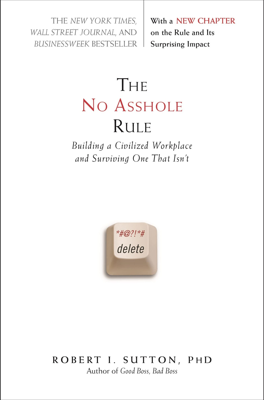The No Asshole Rule as a Way of Life
Key Lessons
Overwhelming Impact of Demeaning Individuals
A few demeaning individuals can overshadow the positive environment created by many well-behaved people. Even a single toxic person can ruin the atmosphere for everyone, emphasizing the importance of eliminating or reforming such individuals.
Importance of Action over Words
Merely talking about or publicly stating the no-asshole rule has no impact unless it is actively enforced. Actions actually dictate the adherence to the rule, and failure to enforce it can lead to perceptions of hypocrisy.
Importance of Little Moments
The effectiveness of the no-asshole rule is determined in everyday interactions. Small, consistent actions reflecting respectful behavior are crucial for maintaining a civilized environment. Training individuals to reflect on and modify minor negative behaviors can significantly reduce overall toxicity.
Risks of Tolerating Assholes
While isolated displays of nasty behavior can serve as examples of unacceptable conduct, allowing such individuals to remain in the organization is dangerous. Their destructive influence can spread quickly, and they may cultivate a similar attitude in others.
Collective Enforcement
The no-asshole rule should be enforced by everyone in the organization, not just management. Empowering all employees and customers to speak out against disrespectful behavior increases compliance and maintains a positive atmosphere.
Power of Embarrassment and Pride
Human beings are highly motivated by the desire to avoid embarrassment and gain respect. Leveraging public embarrassment can be an effective tool to enforce the no-asshole rule, creating a culture where respectful behavior is rewarded and demeaning behavior is met with shame.
Self-Reflection and Control
Recognizing one's own potential for asshole behavior is key. Individuals must reflect on their actions and strive to avoid negative behavior. Keeping away from toxic environments and people can significantly reduce the tendency to act disruptively.
Conclusion
Building a civilized workplace requires everyone’s active involvement in enforcing respectful behavior. Individuals need to recognize their own flaws and avoid toxic environments, while organizations must take consistent actions to uphold the no-asshole rule and create a positive working atmosphere.
